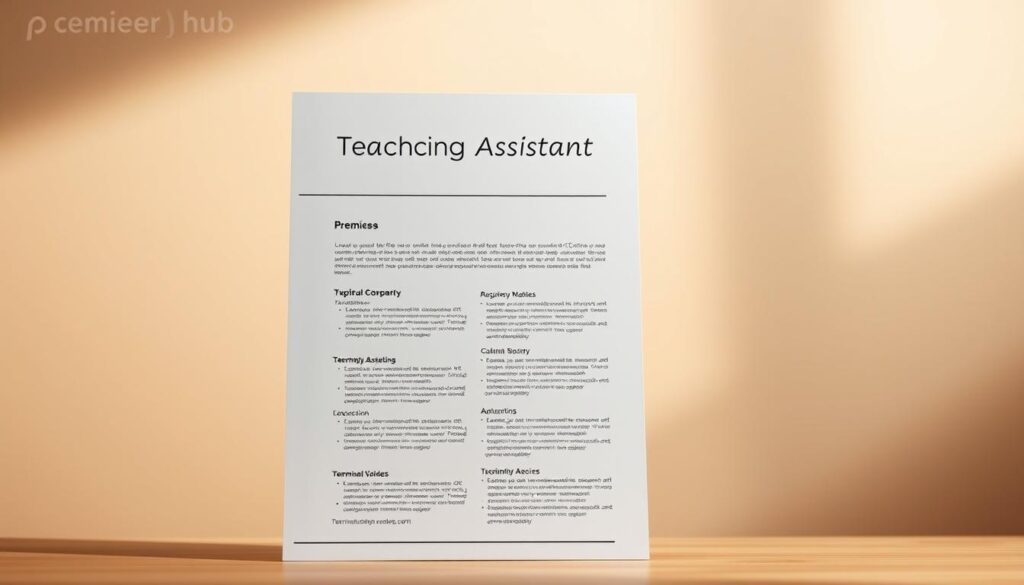Teaching Assistant Jobs Near Me: £20K+ Positions Across UK Schools

Are you searching for teaching assistant roles in your vicinity with salaries up to £20K or more? The UK education sector is currently offering numerous opportunities for individuals seeking positions in schools across the country.
From Sheffield to Rotherham and beyond, various schools are hiring support staff to join their educational teams. If you’re looking to start or advance your career as a teaching assistant, this article will guide you through the current job landscape, essential qualifications, and tips on how to secure these positions.
Key Takeaways
- Explore current teaching assistant job listings across the UK.
- Discover the essential qualifications required for these roles.
- Learn how to find and secure teaching assistant positions.
- Understand the salary ranges for teaching assistants in different regions.
- Get tips on how to enhance your application and stand out.
The Current Landscape of Teaching Assistant Roles in the UK
As we navigate the current educational landscape in the UK, it becomes clear that teaching assistant roles are in high demand. The need for support staff in classrooms has driven the demand for teaching assistants across various regions.
Demand for Teaching Assistants in 2023-2024
The demand for teaching assistants is expected to continue through 2023-2024, with various schools advertising for these positions. Job listings indicate a strong demand, particularly for SEN (Special Educational Needs) roles, highlighting the diverse opportunities available in this sector.
You can find numerous job openings in UK schools, ranging from general teaching assistant positions to specialized roles that cater to specific educational needs.
Regional Variations in Job Availability Across the UK
While teaching assistant jobs are available across the UK, regional variations exist. Some areas have more opportunities than others, making it essential to understand these differences when targeting your job search.
By focusing on regions with higher demand, you can increase your chances of securing a teaching assistant position that meets your needs and preferences.
Essential Qualifications and Skills for £20K+ Teaching Assistant Positions
Teaching assistant roles that command a salary of £20K+ demand specific qualifications and a unique set of skills. To stand out in the competitive job market, you’ll need to possess the right educational background, certifications, and experience.
Minimum Educational Requirements for UK Schools
Most UK schools require teaching assistants to have a good level of education, typically GCSEs in English and Maths or equivalent qualifications. Some schools may also ask for a Level 2 or Level 3 qualification in a related field, such as childcare or education.
Valuable Certifications and Training Programmes
Having additional certifications or training can significantly enhance your job prospects. Consider obtaining a Cache Level 2 or 3 Diploma in Childcare and Education or a HLTA (Higher Level Teaching Assistant) qualification. These certifications demonstrate your commitment to the profession and equip you with the necessary skills to support teachers effectively.
Essential Skills That Command Higher Salaries
To command a higher salary, you’ll need to possess skills that are in high demand. These include the ability to support students with Special Educational Needs (SEN), experience with educational software, and strong communication skills. Being flexible and able to adapt to different classroom environments is also highly valued.
Experience That Makes You Stand Out to Employers
Employers look for teaching assistants with relevant experience in educational settings. Highlighting your experience in supporting teachers, working with children, and contributing to lesson planning can make your application stand out. Volunteer work or previous roles in schools can also be beneficial in demonstrating your capabilities.
Finding Teaching Assistant Jobs Near Me: Your Local Search Guide
Your journey to securing a teaching assistant position starts with understanding the most effective local search methods. With numerous resources available, you can significantly enhance your chances of finding the ideal role by adopting a strategic approach.
Navigating Education-Specific Job Websites
Utilize education-specific job websites to streamline your search. Websites like First For Education offer a range of teaching assistant jobs across various locations in the UK. These platforms allow you to filter your search based on location, job type, and other preferences, making it easier to find relevant opportunities.
Leveraging Social Media and Professional Networks
Social media and professional networks are invaluable tools in your job search. Platforms like LinkedIn enable you to connect with potential employers, join relevant groups, and stay updated on job postings. Engaging with educational communities on Twitter and Facebook can also lead to discovering job opportunities and getting tips from professionals in the field.
Approaching Local Schools Directly
Directly contacting local schools is a proactive approach to finding teaching assistant jobs. Many schools list their vacancies on their own websites or advertise through local job boards. By reaching out, you can express your interest and inquire about potential openings, sometimes even before they are publicly advertised.
Working with Specialist Education Recruitment Agencies
Specialist education recruitment agencies can provide valuable assistance in your job search. These agencies have established relationships with schools and understand the specific needs of educational institutions. They can offer guidance on your application, help you find suitable roles, and sometimes even provide access to unadvertised vacancies.
| Search Method | Benefits |
|---|---|
| Education-Specific Job Websites | Streamlined search, relevant job listings |
| Social Media and Professional Networks | Networking opportunities, job postings |
| Approaching Local Schools Directly | Proactive approach, potential for unadvertised vacancies |
| Specialist Education Recruitment Agencies | Guidance, access to unadvertised vacancies |
By combining these strategies, you can create a comprehensive local search guide that enhances your chances of securing a teaching assistant position that suits your skills and aspirations.
Crafting a Standout Teaching Assistant Application
To stand out in the competitive teaching assistant job market, it’s crucial to craft an application that showcases your skills and experience. Your application is often the first impression you make on potential employers, so it’s essential to get it right.
Tailoring Your CV for UK School Environments
Your CV should be tailored to highlight relevant experience and skills for UK school environments. Focus on including specific examples of your experience working with children, supporting teachers, and contributing to classroom activities. Use clear, concise language and a clean format to make your CV easy to read. For example, you might highlight your ability to adapt to different learning environments or your experience with special educational needs.
According to a survey by the National Education Union, 75% of schools consider a well-tailored CV to be a crucial factor in the hiring process for teaching assistants. Ensure that your CV is updated and tailored to the specific job you’re applying for, highlighting the skills and qualifications that match the job description.

Writing a Compelling Cover Letter That Gets Noticed
Your cover letter should compellingly convey your passion for supporting education and your suitability for the role. Start by addressing the hiring manager by name, if possible, and clearly state the position you’re applying for. Use the body of the letter to highlight your relevant experience, skills, and achievements. For instance, you might describe a successful project you led or a challenging situation you managed effectively.
“A good cover letter can make all the difference. It’s your chance to tell your story and show your enthusiasm for the role.” –
Use specific examples to demonstrate your ability to support students and teachers. Keep your cover letter concise, ideally no more than one page, and use a professional tone.
| Key Elements | Description | Example |
|---|---|---|
| Relevant Experience | Highlight your experience working with children or in educational settings. | “Two years of experience as a teaching assistant in a primary school.” |
| Skills | List the skills that are relevant to the teaching assistant role. | “Ability to support students with special educational needs.” |
| Achievements | Describe any achievements or successes you’ve had in previous roles. | “Improved student engagement by 25% through targeted support.” |
Building a Professional Portfolio of Your Educational Experience
Building a professional portfolio can significantly enhance your application. Include examples of your work, such as lesson plans, student assessments, and any relevant projects you’ve managed. This demonstrates your capabilities and provides tangible evidence of your experience. For example, you might include a case study of a student you’ve supported or a feedback letter from a teacher.
Keep your portfolio organized and easy to navigate. Use clear headings and concise descriptions to guide the reader through your portfolio. This will help you stand out from other applicants and show your commitment to the role.
Acing Your Teaching Assistant Interview
As you prepare for your teaching assistant interview, it’s essential to understand what schools are looking for in a candidate. Schools are not just looking for someone with the right qualifications; they want a teaching assistant who can support the teacher, manage the classroom, and provide individualized attention to students when needed.
Common Interview Questions in UK Schools
Understanding the types of questions you’ll be asked in a teaching assistant interview can help you prepare more effectively. Common questions often revolve around your experience working with children, your ability to support students with special educational needs, and your strategies for managing classroom behaviour.
- Can you describe a time when you had to support a student with a learning difficulty?
- How would you manage a classroom when the teacher is absent?
- How do you ensure that you maintain a positive and respectful relationship with both students and staff?
Demonstrating Your Classroom Support Skills
Your ability to support the teacher and manage the classroom effectively is crucial. Be prepared to give examples of how you’ve done this in the past, such as helping students with their work, managing classroom resources, and maintaining a positive learning environment.
Key skills to highlight include:
- Ability to work as part of a team
- Classroom management techniques
- Support for students with diverse needs
| Skill | Example | Benefit |
|---|---|---|
| Classroom Management | Implementing behaviour management plans | Creates a conducive learning environment |
| Teamwork | Collaborating with teachers and other TAs | Enhances overall classroom support |
| Student Support | Providing individualized support to students | Improves student outcomes and confidence |
Questions to Ask Your Potential Employer
Asking questions during your interview not only shows your interest in the role but also demonstrates your level of preparation. Consider asking about the school’s approach to supporting students with special needs, the typical responsibilities of a teaching assistant in the school, and opportunities for professional development.
Post-Interview Follow-Up Strategies
After the interview, it’s a good idea to send a thank-you note or email to the interviewer, expressing your gratitude for the opportunity and reiterating your interest in the position. This can leave a positive impression and keep you top of mind for the interviewer.
Understanding Teaching Assistant Salary Structures: Securing £20K+ Positions
The UK’s teaching assistant job market offers various salary scales, and knowing how to navigate them can help you land a £20K+ role. As you explore these opportunities, it’s essential to understand the factors that influence salary structures across different regions.
Salary Ranges Across Different UK Regions
Salary ranges for teaching assistants vary significantly across the UK. For instance, teaching assistants in London and the South East tend to earn higher salaries compared to those in other regions. Here are some approximate salary ranges:
- London: £22,000 – £25,000 per annum
- South East: £20,000 – £23,000 per annum
- North West: £18,000 – £21,000 per annum
- Other regions: £17,000 – £20,000 per annum
Understanding these regional variations can help you tailor your job search and salary expectations.
Negotiating Your Compensation Package
Negotiating your compensation package is a crucial step in securing a £20K+ teaching assistant position. To do this effectively, you should:
- Research the average salary for teaching assistants in your region
- Highlight your relevant qualifications and experience
- Emphasize your skills and the value you bring to the school
By being prepared, you can confidently negotiate a salary that reflects your worth.
Additional Benefits and Perks in the Education Sector
Beyond the basic salary, many schools offer additional benefits and perks that can enhance your overall remuneration package. These may include:
- Pension schemes
- Paid holidays
- Professional development opportunities
- School staff facilities
When evaluating job offers, consider these additional benefits to determine the total value of your compensation package.

Types of Teaching Assistant Roles in UK Schools
Whether you’re just starting out or looking to advance your career, understanding the different types of teaching assistant roles is crucial. As you explore teaching assistant jobs near you, you’ll discover a range of roles tailored to different needs and environments.
General Teaching Assistants vs. Specialised Roles
Teaching assistants can work in general classroom settings or specialize in specific areas. General Teaching Assistants support teachers with daily tasks, while specialized roles focus on particular needs, such as literacy or numeracy support.
- General classroom support
- Special Educational Needs (SEN) support
- Literacy and numeracy specialist
Supporting Students with Special Educational Needs (SEN)
Teaching assistants working with SEN students play a vital role in their educational journey. These roles require patience, understanding, and often specialized training. SEN support can make a significant difference in a child’s ability to learn and integrate.
Higher Level Teaching Assistant (HLTA) Positions
For those looking to advance, Higher Level Teaching Assistant positions offer more senior roles within schools. HLTAs are qualified to lead lessons and take on additional responsibilities, making them a valuable asset to educational institutions.
- Lead lessons in the absence of the teacher
- Develop and implement educational plans
- Support other teaching assistants
Career Progression Pathways for Teaching Assistants
With dedication and the right training, teaching assistants can unlock numerous career advancement opportunities. As a teaching assistant, you are already taking the first steps towards a fulfilling career in education. The key to progressing further lies in understanding the available pathways and leveraging them effectively.

From Teaching Assistant to Qualified Teacher
One of the most significant career progression pathways for teaching assistants is becoming a qualified teacher. This involves pursuing higher education, such as a Bachelor’s degree in Education or a related field, and obtaining Qualified Teacher Status (QTS) through a teacher training programme. With QTS, you can apply for teaching positions in schools, marking a significant step up in your career.
Specialisation Opportunities Within the UK Education System
Specialising in specific areas can also enhance your career prospects. For instance, you can focus on Special Educational Needs (SEN) or literacy support. Specialising not only makes you more attractive to potential employers but also equips you with the skills to make a more significant impact in the classroom.
Continuing Professional Development for Career Advancement
Engaging in Continuing Professional Development (CPD) is crucial for career advancement. This can include attending workshops, seminars, and courses that improve your skills and knowledge. CPD demonstrates your commitment to professional growth and can be a decisive factor when applying for higher roles or specialised positions.
By exploring these pathways and committing to your professional development, you can achieve a successful and fulfilling career in the education sector.
Conclusion: Taking the Next Step in Your Teaching Assistant Career
Embarking on a Teaching Assistant Career is a rewarding journey, with numerous opportunities for growth and development. By understanding the current landscape, acquiring the necessary qualifications and skills, and strategically searching for jobs, you can secure a fulfilling role.
As you progress in your career, consider furthering your education, specialising in specific areas, or taking on more senior roles. Job listings and career advice resources are available to support your next career steps. You can explore various pathways, including becoming a Higher Level Teaching Assistant or pursuing a career as a qualified teacher.
To take the next steps, leverage education-specific job websites, professional networks, and specialist recruitment agencies. By doing so, you’ll be well on your way to advancing your Teaching Assistant Career and achieving your goals.
FAQ
What are the typical salary ranges for teaching assistants across different UK regions?
Salaries for teaching assistants vary across the UK, with some regions offering higher pay scales than others. Understanding these regional variations can help you negotiate your compensation package effectively.
What qualifications do I need to become a teaching assistant in UK schools?
Most schools require a certain level of qualification, such as GCSEs or equivalent, and having additional certifications or training can be advantageous. Some schools may also require or prefer candidates with specific qualifications, such as a Level 2 or 3 Diploma in Supporting Teaching and Learning.
How can I find teaching assistant jobs near me with salaries up to £20K or more?
You can find teaching assistant jobs by utilizing education-specific job websites, leveraging your professional network, and considering reaching out directly to local schools. Specialist recruitment agencies can also provide valuable assistance in your job search.
What skills are in high demand for teaching assistants in UK schools?
Skills that are in high demand include the ability to support students with special educational needs, experience working in educational environments, and excellent communication and interpersonal skills. Highlighting these skills and experiences can make your application stand out.
Can I progress from a teaching assistant role to becoming a qualified teacher?
Yes, with further education and training, you can move from a teaching assistant role to becoming a qualified teacher. Many teaching assistants choose to pursue higher education and gain Qualified Teacher Status (QTS) to advance their careers.
What are Higher Level Teaching Assistant (HLTA) positions, and how can I qualify for them?
Higher Level Teaching Assistant positions require additional qualifications and offer more senior roles within schools. To qualify, you typically need to have a HLTA qualification, which involves a formal assessment of your skills and experience.
How can I demonstrate my classroom support skills during a teaching assistant interview?
To demonstrate your classroom support skills, be prepared to provide specific examples of your experience working with students, supporting teachers, and managing classroom environments. You can also highlight any relevant training or certifications you have received.
What are the benefits of working as a teaching assistant in UK schools?
Working as a teaching assistant can be a rewarding career, with opportunities for growth and development. You can also enjoy benefits such as holidays, pension schemes, and professional development opportunities, in addition to your salary.
How can I negotiate my compensation package as a teaching assistant?
To negotiate your compensation package effectively, research the salary ranges for teaching assistants in your region and be aware of the benefits and perks offered by the school. You can also highlight your relevant experience, qualifications, and skills to demonstrate your value to the school.